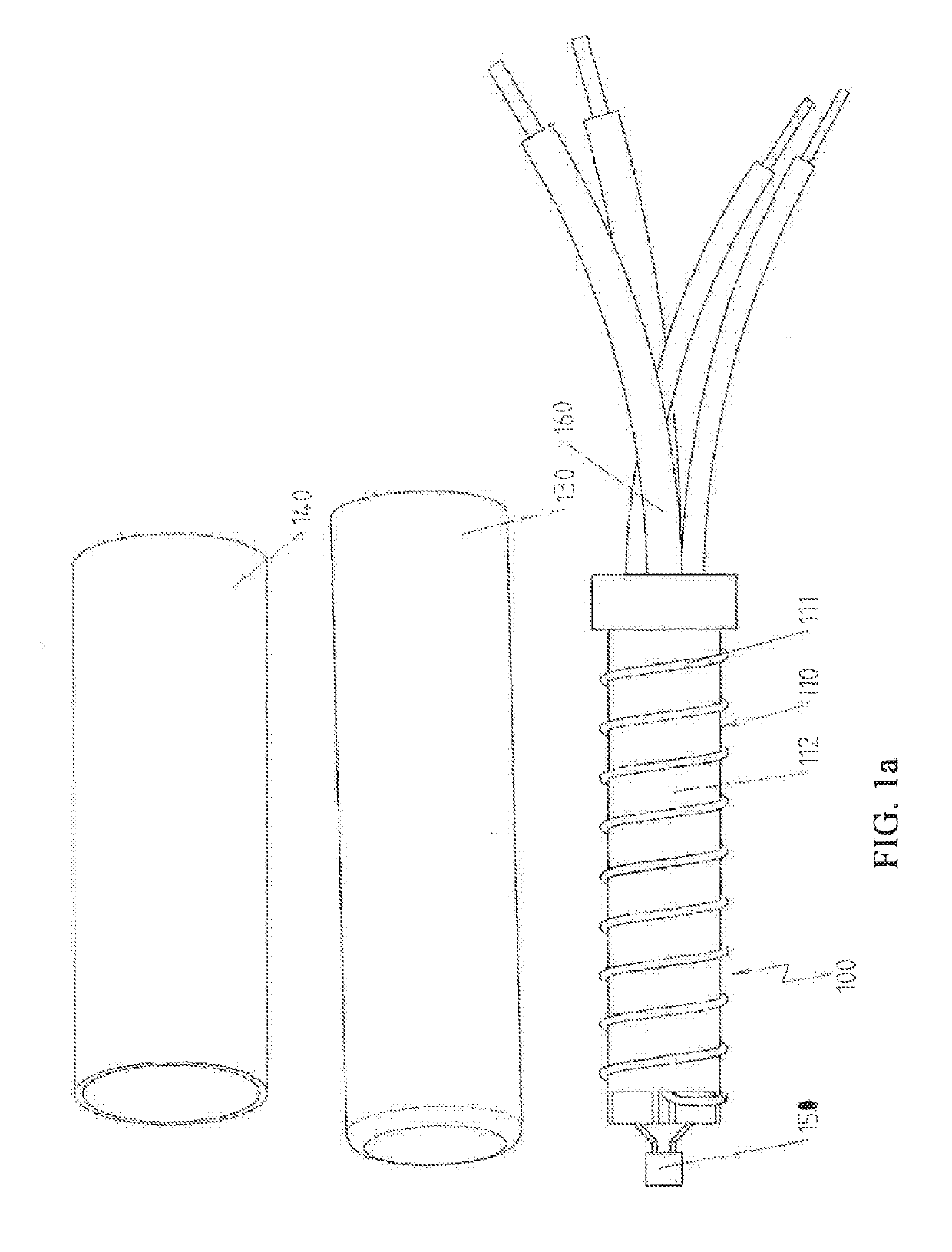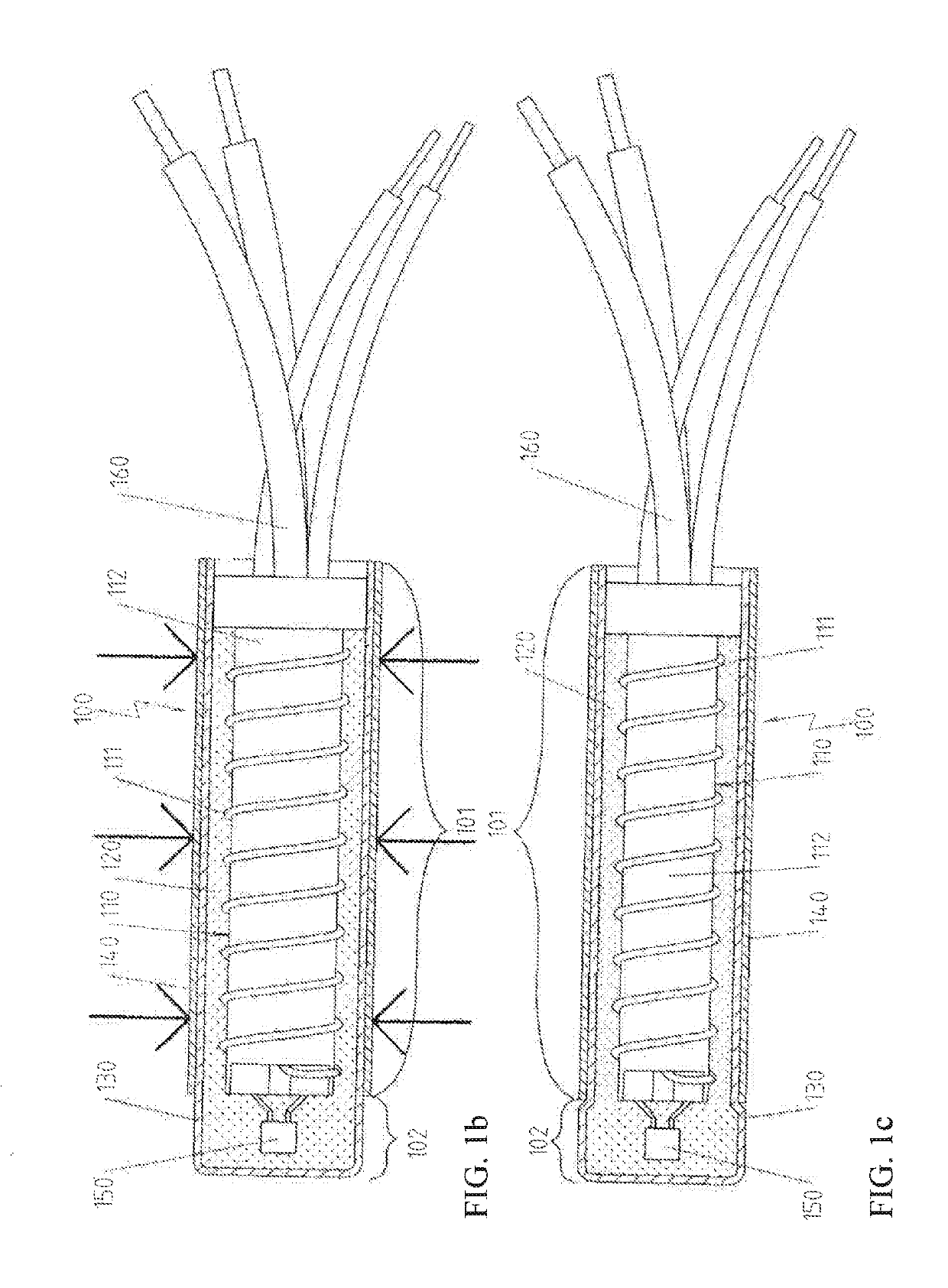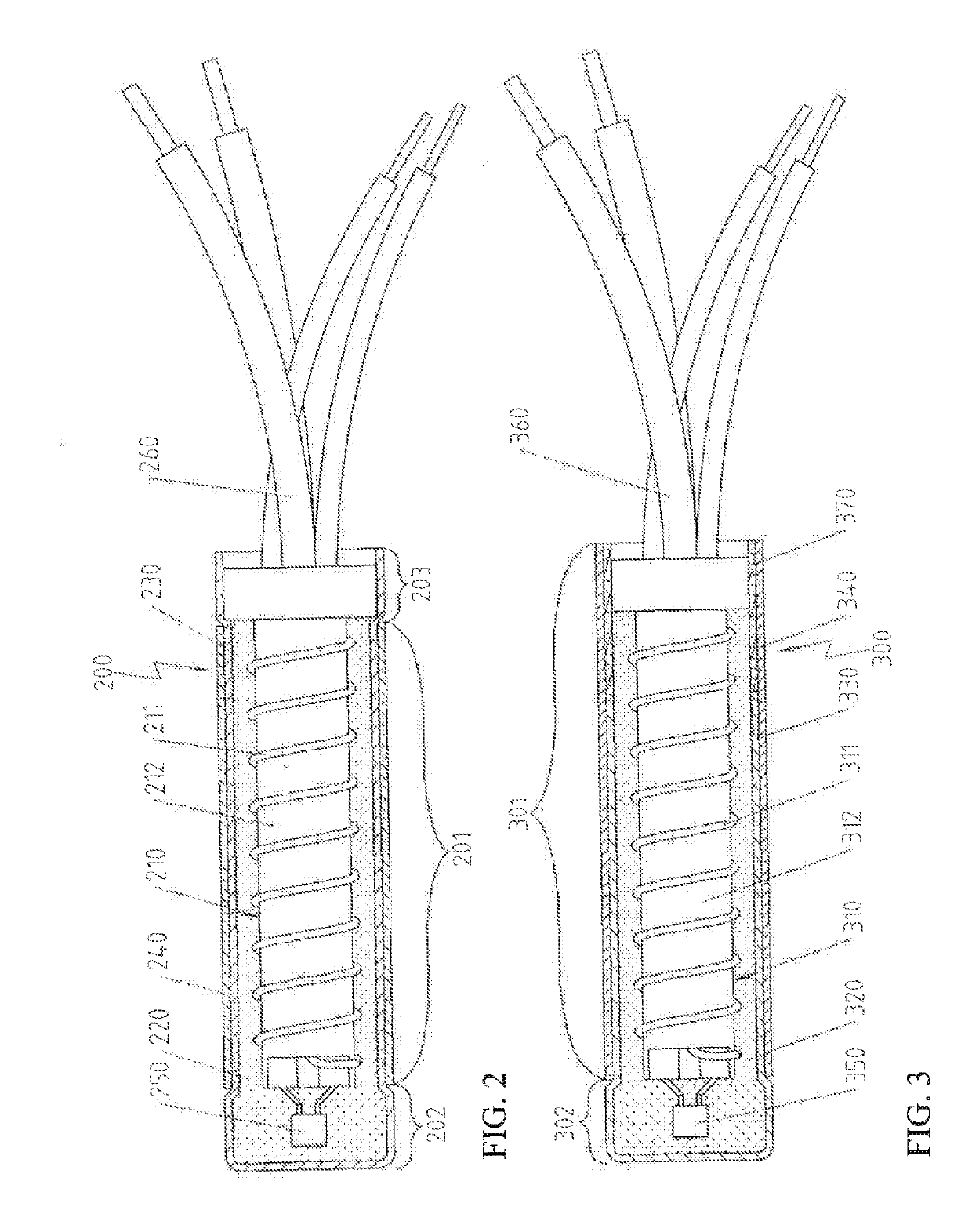Method for producing an electrical heating device
a heating device and heating element technology, applied in the manufacture of heating element shapes, manufacturing tools, envelope/housing resistors, etc., can solve the problems of insufficient strength of jacket materials, inability to implement this approach in production processing,
- Summary
- Abstract
- Description
- Claims
- Application Information
AI Technical Summary
Benefits of technology
Problems solved by technology
Method used
Image
Examples
Embodiment Construction
[0041]If arrows are drawn in figures that still show non-compressed electrical heating devices, these arrows indicate the direction of the compression of the system or method.
[0042]FIG. 1a shows the partially preconfigured components of an electrical heating device 100 prepared for performing the additional processing steps in accordance with a first preferred embodiment. This figure shows, in particular, the electrical heating element 110 constructed as coil body 112 wound with a resistance wire 111, and the sleeve 130 made from copper and the tubular section 140 made from stainless steel. Naturally, copper and stainless steel have their own strength values, and the strength of stainless steel is higher than that of copper.
[0043]The electrical heating element 110 is also preconfigured here to the extent that an electronic component 150, namely here a temperature sensor, is arranged on the coil body on the end side and a connection to connecting wires 160 has already been produced.
[...
PUM
| Property | Measurement | Unit |
|---|---|---|
| strength | aaaaa | aaaaa |
| area | aaaaa | aaaaa |
| processing reliability | aaaaa | aaaaa |
Abstract
Description
Claims
Application Information
 Login to View More
Login to View More - R&D
- Intellectual Property
- Life Sciences
- Materials
- Tech Scout
- Unparalleled Data Quality
- Higher Quality Content
- 60% Fewer Hallucinations
Browse by: Latest US Patents, China's latest patents, Technical Efficacy Thesaurus, Application Domain, Technology Topic, Popular Technical Reports.
© 2025 PatSnap. All rights reserved.Legal|Privacy policy|Modern Slavery Act Transparency Statement|Sitemap|About US| Contact US: help@patsnap.com



